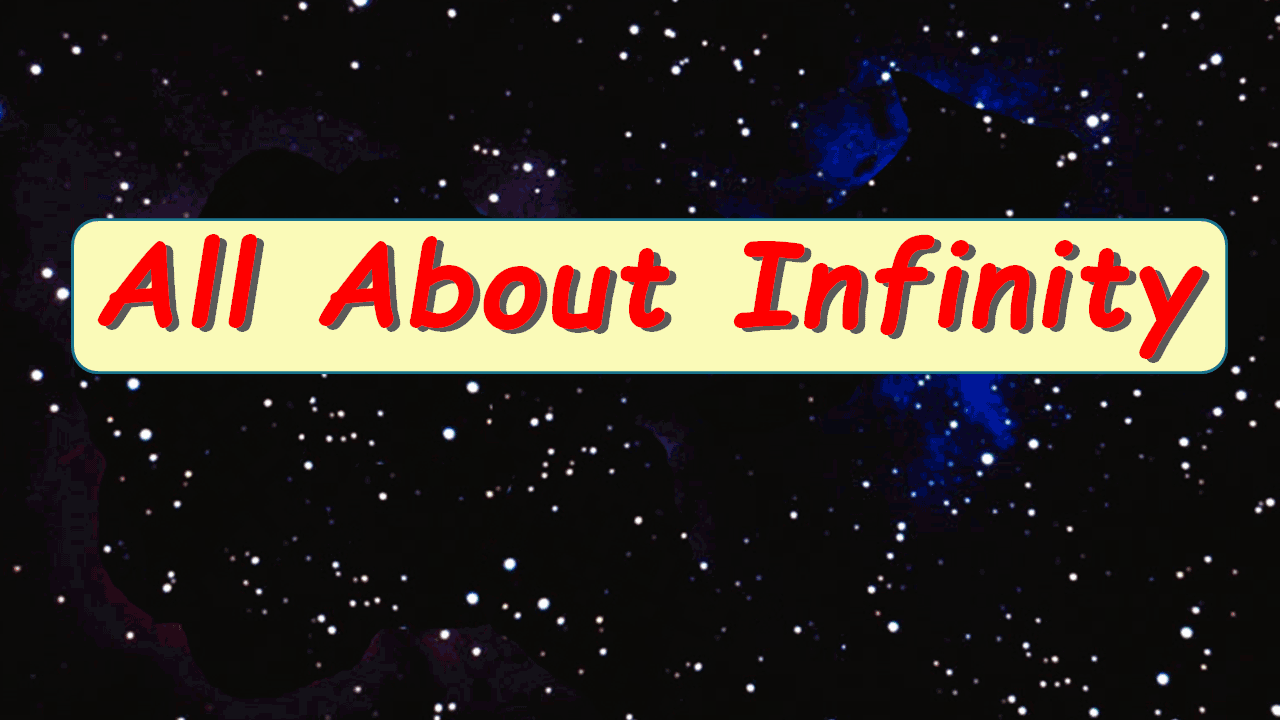If an infinite universe is immeasurable , then all measurments are false
. Any portion of the universe is pseudo-finite or almost infinite . We
can distinguish portions in the universe because it is infinitly
heterogenous .
To understand the universe is to understand the most fundamental principles of numbers. First, it’s very important to understand that numbers are an invention of mankind. Nothing more. Of paramount concern is how numbers translate or integrate with the universe. There is an apparent correlation to our numbering system and nature. Numbers are linear which allows us to perform mathematics that directly applies to the universe, and that in turn allows us to make mathematical predictions in nature. It’s that bound relationship between the universe, numbers, and mathematics which fascinates and perplexes us. It offers us the ability to understand our reality on a provable mathematical level. We can obtain empirical mathematical proofs. Understanding them in human terms is a whole other topic of discussion. There is no way to quantify what we think. And we most certainly have a huge problem formulating a consensus on what to think.
Simplicity is the key to understanding, and to understand the simplicity of the problem you must abandon our base 10 numbering system. It’s too many variables and only serves to add unnecessary levels of complexity to the problem.
The universe is elegant simplicity. Humans are complicated.
The first two fundamental variables in the universe are, |A| and |B|.
|A| = Nothing
|B| = Something
Nothing = |0|
Something = |1|
And that’s the beginning to understanding the problem. That’s the hook. It’s where I began trying to understand the problem more years ago than I care to admit.
Nothing is the opposite of something, or more importantly, the absence of something.
We can also look at it from a standpoint of a minimum and maximum state of the universe.
Logically there cannot be nothing less than nothing, or something greater than something.
|A|=|A|
|B|=|B|
It’s important to understand that I am also looking at these variables from an absolute standpoint. Something either exists, or it doesn’t. The universe itself either exists, or it doesn’t. Clearly it does exist, as our existence is empirical evidence to that fact. And while |B| exists, |A| cannot exist, and vice versa. They are opposites, so they cannot coexist in an absolute state. Universally speaking.
We can also claim, |A|<|B|, logically speaking.
That’s the most fundamental understanding of the universe and how numbers and mathematics relate to it. That’s the fundamentals of the universe, and not coincidentally, the fundamentals of numbers and mathematics.
It’s from that point we add complexity. And then the whole thing goes sideways in an abyss of controversy, theory, debate, ego, etc., etc., etc. Humans being humans.
The sum total of the universe = |1|, because it does not = |0|.
Our existence, though, is fractional. We’re the decimal points that lie between |0| and |1|. We are the, <, and > symbols, that view the universe from different vantage points, or frames, or perspectives. And what lies between |A| and |B| is ∞.
Infinity is the non-absolute state of the universe that lies between |0| and |1|. We can exist at 1 and cease to exist at 0. We are in a constant state of motion from B to A or A to B.
|A|<A<B<|B|
Infinity cannot exist without the limits of |A| and |B|, and vice versa. And it’s also important to understand that no two states can coexist.
The universe can only exist in one of 3 states.
|A|, ∞, |B|
Or
|A| < U < |B|
U = (A,B) = ∞
Measuring the universe is a matter of perspective. How big the universe is, is a matter of perspective, and that depends on what we’re using to measure the universe. If we consider the universe as a unit of measure unto itself, its value is always 1 at any given moment in time, but its absolute limit at any given moment in time is |0| or |1|.
Based on a meter, it’s a really big number of
little pieces that are all dependent on time and space. And that only has meaning at your particular moment
in time and space.
-
This reply was modified 2 years, 4 months ago by
 Andy.
Andy.

